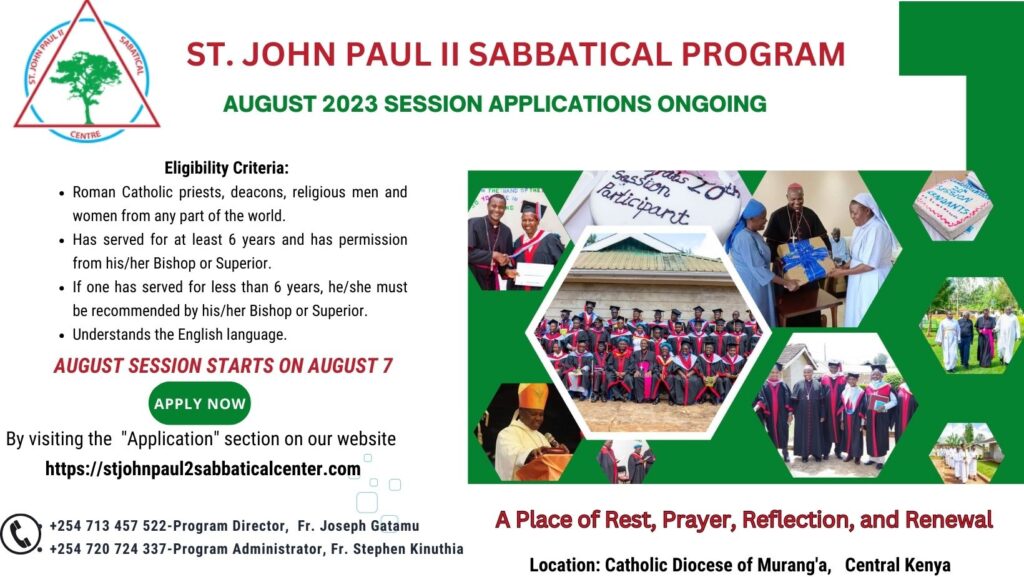From Burnout to Renewal: Reflections of St. John Paul II Sabbatical Program’s 20th Session Participants
Started in August 2013, the St. John Paul II Sabbatical Program is a renewal and ongoing formation program that has emerged as a transformative journey for Priests and Religious seeking renewal, personal growth, and spiritual development. Through an extensive four-month experience, participants from diverse backgrounds have found solace, introspection, and a renewed sense of purpose. In a series of interviews, participants in the 20th session of the Program that ended on May 12 shared their experiences, highlighting the profound impact the initiative has had on their lives and ministries.
Restoring the Weary Soul, Renewing Vocations
After six years at the helm of the Kenyan Province of the Comboni Missionaries of the Heart of Jesus as a Superior, Fr. Austine Radol was tired and desired rest. He admits that rest was initially his main preoccupation but found much more within the St. John Paul II Sabbatical Program.
“But when I came here, I found not only a place for resting but also good courses that awaken one to enter into himself and to work on himself, rejuvenate himself in order to continue working in the vineyard of the Lord,” Fr. Austine who has been a Comboni Missionary for the last 19 years shared on the sidelines of the 20th session graduation ceremony on May 12.
Fr. Austine’s account is similar to that of many of the 31 participants in the 20th session who graduated with a Certificate in Multicultural, Psycho-Spiritual Counselling, and Human and Personal Development. Having served in their apostolates for several years without significant rest, burnout was beckoning, and the Sabbatical Program was a welcome respite.
Similarly, Sr. Ephigenia Wambui Gachiri, a Kenyan Loreto Sister for the last 58 years found herself teetering on the brink of burnout before embarking on the transformative journey of the Sabbatical Program. A teacher by profession, Sr. Ephigenia is a renowned anti-female genital mutilation (FGM) crusader based in Kenya’s Kajiado County, a region with a 78% FGM prevalence rate. Committed to this noble cause that has seen her author books and engage in advocacy, she acknowledges that she might have worked “too hard.”
“The four months have helped me so much to rest, reflect on my work and what I can do, and reflect on the call to follow Christ. I really feel renewed,” Sr. Ephigenia, one of the pioneer African Sisters in the 414-year-old Congregation noted.
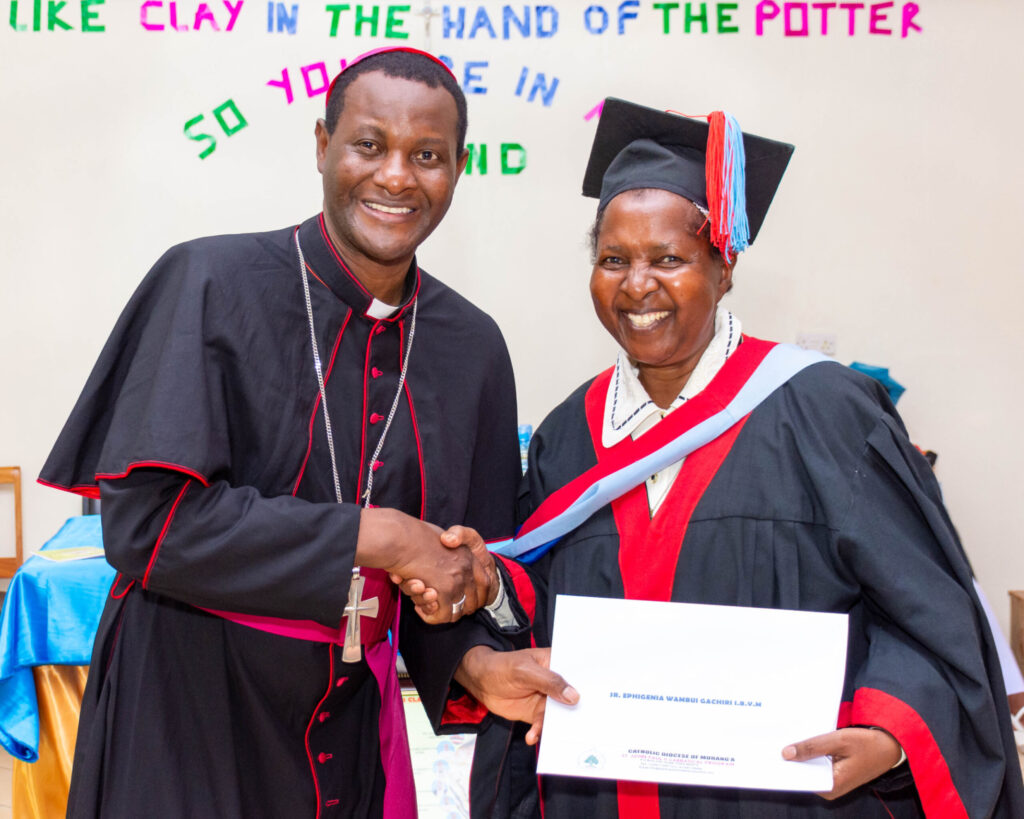
For others like Fr. John Kipruto, 33 years of Priesthood with a dedicated apostolate in hospital chaplaincy and professional counseling left him “extremely tired,” and not even short, frequent holidays would resolve the burnout he experienced. Realizing he was at risk of developing depression, he asked his Bishop for permission to take some rest.
“For the four months I have been here, I would like to thank God for being well rested-physically and mentally, and I will resume my apostolate fresh,” the Priest of Kenya’s Catholic Diocese of Nakuru said.
Having not had such a moment of rest for the last 17 years of his Priesthood, Fr. George Kaoma of Zambia’s Ndola Diocese says of the Program, “It was something very important for me, and that is why I feel that even other priests, and religious having served in their apostolates, they need such as time to renew themselves through a sabbatical experience.”
Moreover, Fr. George Kaoma’s perspective resonates with that of other dedicated clergy members, such as Fr. Andrew Simiyu, a missionary Priest who candidly acknowledges the challenges he faced while ministering to indigenous communities in Canada’s Catholic Archdiocese of Grouard-McLennan. Serving alone in a parish for five years, Fr. Andrew describes the experience as “quite engaging,” but the toll of such demanding work ultimately led him to recognize the need for respite.
Fortunately after participating in the ten-year-old Sabbatical Program, the member of the Franciscan Missionaries of Hope Kenya for the last nine years attests, “My burnout has ended, and I feel renewed.”
A Birthday Gift
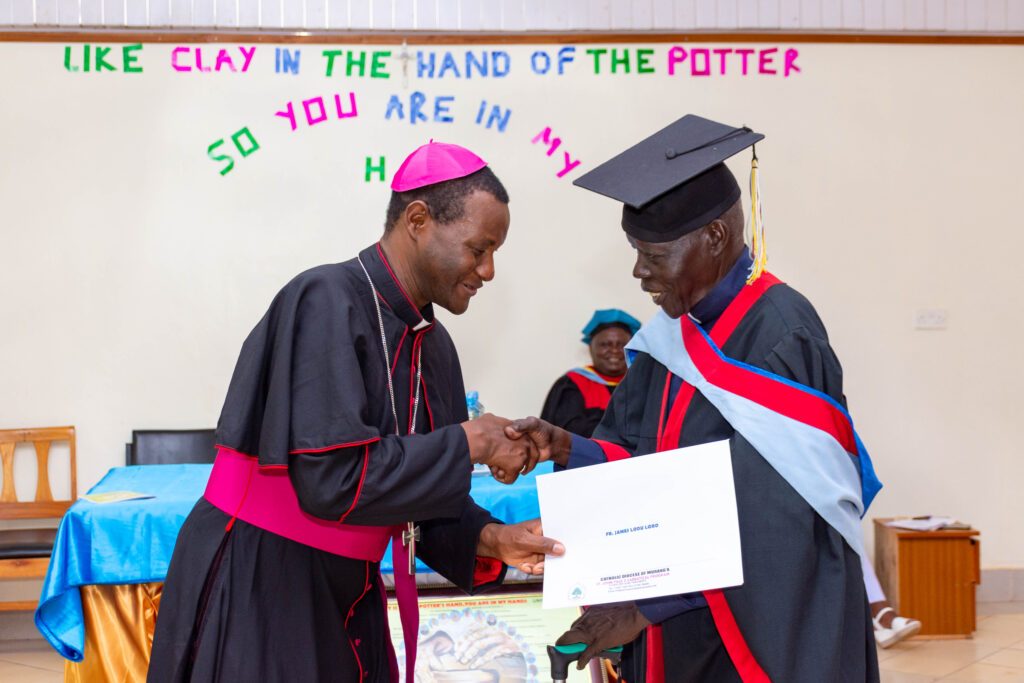
On the part of the oldest participant in the 20th session, Monsignor. James Lodu Luro, the Sabbatical Program was the best birthday gift he would have asked for. Having dedicatedly served as a Priest in Africa’s youngest nation, South Sudan, for the last 53 years, rest is all he needed as his 80th birthday beckoned, a request that the Archbishop of Juba approved.
“While here, I was able to get through all the areas of my spiritual renewal. All the lectures given gave me the very power I was looking for. I feel like I have been reborn,” Msgr. James, who was bestowed with the title by the late Pope Emeritus Benedict XVI in 2013 for his long and dedicated service to the church, said.
Embracing Personal Growth
For other participants, the St. John Paul II Sabbatical Program was a moment to have physical rest while embarking on a journey of self-discovery, unearthing unresolved issues, fostering self-awareness, and cultivating healthier relationships. This was the case for Fr. William Nzyoka, a Kenyan member of the Apostles of Jesus Congregation for the last 30 years. For him, the Sabbatical Program offered an opportunity to heal the wounds arising from his ministry.
“I benefited a lot because there are some feelings, especially negative ones, which I had to process towards improved relationships with one another and God,” he said, adding, “In the course of serving the people, we are wounded, and we need to heal those injuries so that we continue taking care of God’s flock.”
Br. Bruno Kanyomozi, a Comboni Missionary from Uganda, shares Fr. William’s sentiments noting that the Program provided him the much-needed space to “process some issues that were not finished in the mission.” He considered participating in the Program a success as he felt “energized to go back and resume (his) work.”
“It (Sabbatical Program) was helpful because it helped me to discover my own life, to reread my book of life for the past 32 years, and I came to realize that there are things I thought I knew but I did not, so it is as if you are coming from the known to the unknown and then back again. I appreciated that so much,” Br. John Karungai, a Kenyan member of the Brothers of Mercy Congregation, shared.
Forging Lifelong Bonds
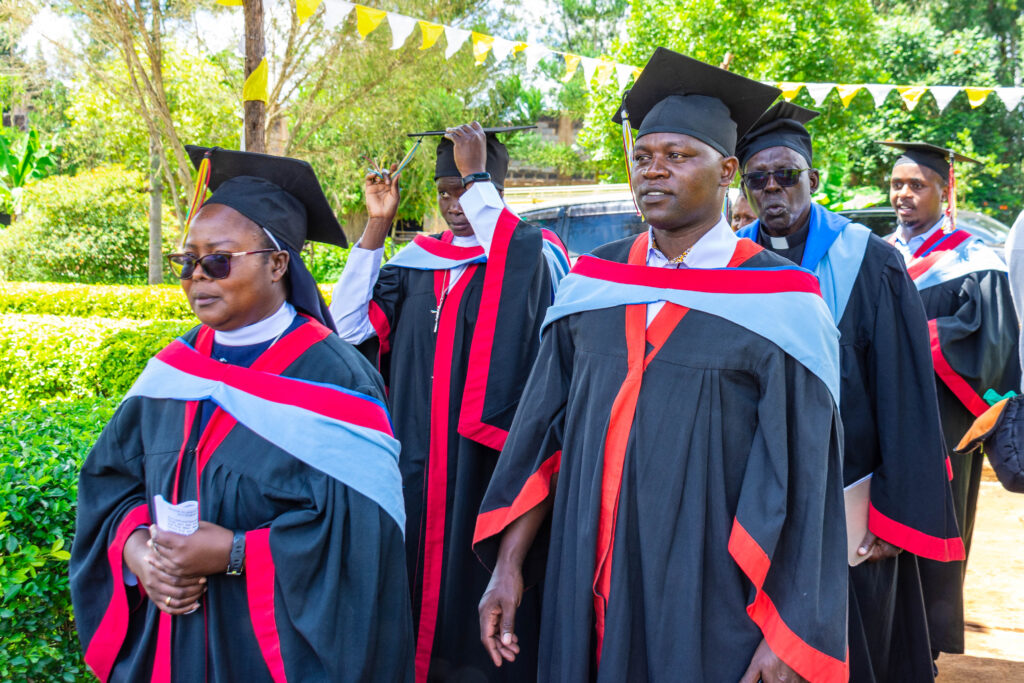
Beyond getting renewed and re-energized for ministry, the opportunity for the participants to form lasting relationships stood out for Fr. Bernard Ng’ang’a Teresiah, who acknowledged that the participants’ demographics coupled with their different experiences, was an asset that made the 20th session a “moment of grace” that they christened it to be.
“Interactions with the other participants who hailed from different countries and cultures made the stay very homely. The mixture of people of different ages and gender didn’t hinder our interactions; rather, it enhanced our growth and bond,” Fr. Bernard, a Priest of Kenya’s Catholic Archdiocese of Nairobi for five years, noted.
According to him, the participants’ unity, coupled with the facilitators’ goodwill and the support staff’s hospitality, “made a one big and complete family,” an aspect that made the goodbyes emotional.
Embracing Unexpected Blessings
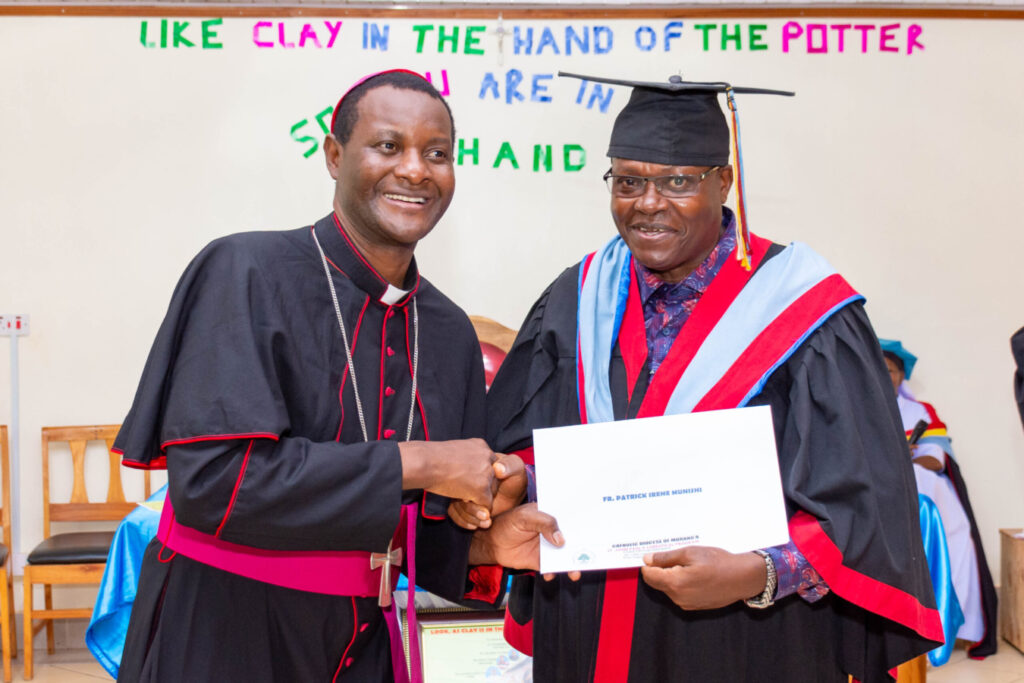
For Fr. Patrick Munishi, a Tanzanian-born Priest of Kenya’s Catholic Archdiocese of Mombasa, the news that he would be participating in the 20th session of the Sabbatical Program was unwelcome because of the misconception that such initiatives were meant for those with disciplinary issues. However, as he graduated, he acknowledged that the Program was everything his Archbishop had assured him it would be – a moment of rest and spiritual renewal.
“You tell me to continue being here, and I would. Let all priests and religious come here,” he said, referencing the St. John Paul II Sabbatical Program.
A Sanctuary of Serenity
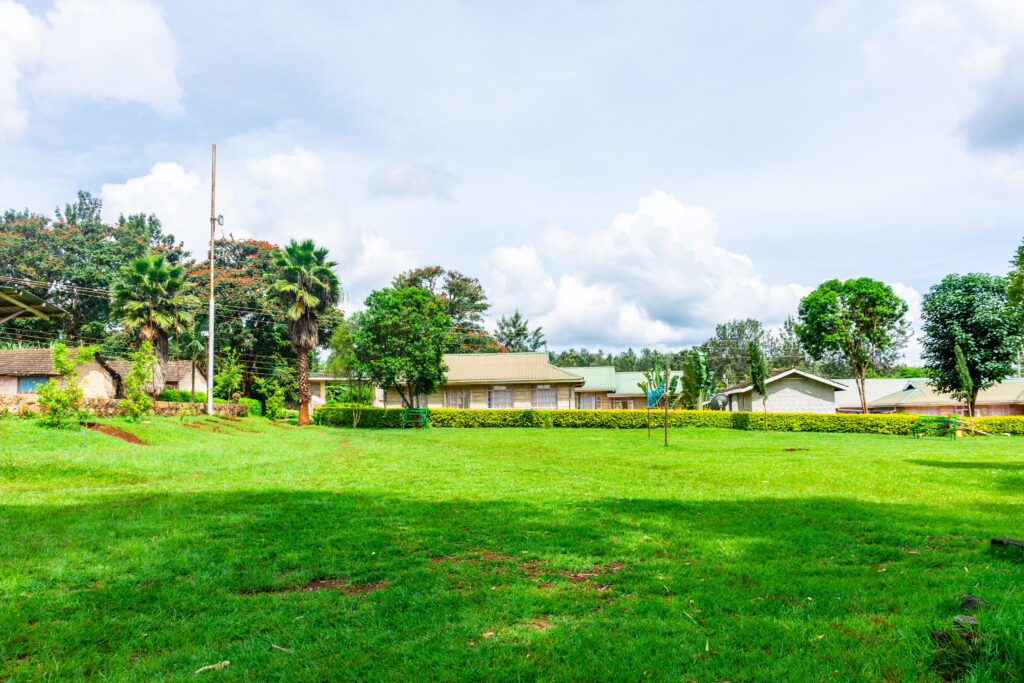
The location of St. John Paul II Sabbatical Centre, which hosts the Program, in the middle of a typical African village in Central Kenya, approximately 5 km off the highway and 80 km from Kenya’s capital city, Nairobi, offered the participants a conducive environment for rest and reflection.
“The environment is very friendly, it is very far from town, it is secluded in a village whereby we have enough time to reflect on our lives and materials we have been offered in the program,” Sr. Euphrasia Katambani, a member of the Benedictine of Grace and Compassion, UK noted referencing the Centre.
Her sentiments were shared by Fr. Bernard Ng’ang’a, who noted that “The conducive and serene environment of the sabbatical center had both physical and spiritual healing in us. This put us in a prayerful mood all the time.”
For Fr. Boris Mapili of Zambia’s Catholic Diocese of Ndola, the nesting of the Centre in a village setup offered a homely feeling and fresh air. When not participating in the Program’s activities, he would spend his free time jogging around the village and its environs, an opportunity that gave him new little friends.
“I would go jogging, and the kids around would join and jog with me. We would talk but not understand each other because of the language barrier, but I enjoyed their company,’ he said.
Summarizing the impact of the St. John Paul II Sabbatical Program on the participants, Fr. Boris said, “I can say the Program is designed in a way that may divide your life into two – before you attended and after.”
